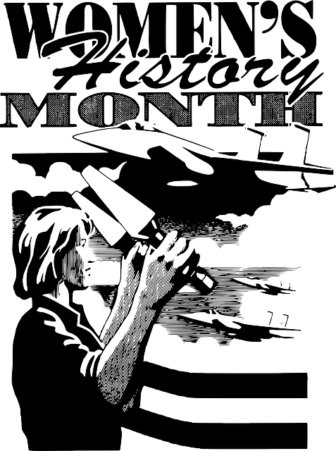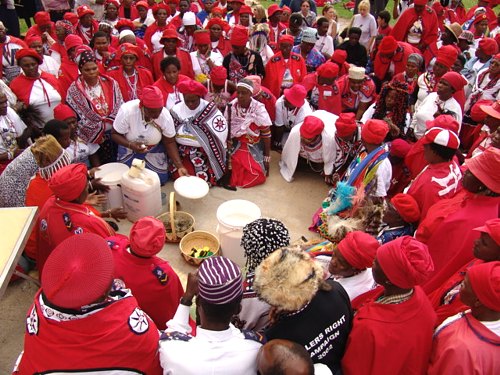
What I’m thinking about today: women, history, and labels.
March is Women’s History Month, which both delights and saddens me. Celebrating all women resonates in a positive manner. However, labelled months denote a separation from the ordinary, an indication that this time is meant to spotlight the achievements and accomplishments of a specific group – and that we do not regularly give that spotlight otherwise. As individuals, we see, make, and live history every day. Our actions remain recorded in the annals of lives touched and in the hearts of our loved ones. Each ancestral ritual of remembrance grants us the time to honor the history that forms our unique selves.
Women are not important just during the month of March.
When I think of Women’s History Month, I consider the women who have helped to shape my life in areas of love, writing, and faith. While these experiences were not always positive, they nourished and provided examples of fortitude that can be passed to others who may need them.

[Pixabay]
How we remember history evolves from the will and the guidance of those in power. For decades before the 1980s, a primary complaint of feminists revolved around the lack of women’s achievements in history books and textbooks in American classrooms. The National Women’s History Alliance helped to resolve this first by a successful campaign for a Women’s History Week, followed by the start of Women’s History Month in 1987 in the United States. Yet 33 years later, there remains the need to bottle up a public acknowledgement of many historical milestones made by women into the 31 days of March.
The women who taught me that the acts of those around us are important to remember every day were my mother and grandmothers. The daily lessons of living black in a world that does not always acknowledge your presence remain the domain of parents, caregivers, and kind strangers. While films and books such as Hidden Figures by Margot Lee Shetterly bring the importance of women to life, all too often the lessons are passed down from parent to child through actions and the spoken word.
My grandmothers taught me survival, the importance of a strong religious faith, the value of a good laugh, and the need for family. My mother taught me that feminism represents equality for all in each area of life regardless of gender, race, class, or appearance. She stressed the ability to be independent, the importance of financial knowledge, and the impact of certain choices, such as when or whether to have a family or a partner. Her fear for my choices in religion and my late-in-life coming out revolved around safety and community.
Living as a person of color in the United States can be isolating without a family or of origin or community of choice. As a woman, it is the understanding of these lessons that make life a bit more enjoyable. Finding those who can enrich the journey through acceptance and having the courage to be honest with oneself have been the two most valuable lessons my female relatives gave to me.
As I look at who matters to me during Women’s History Month, the most cherished women in my life are writers. One such friend recently transitioned and I remember her fortitude as a woman who never gave up. Her lyrical lines and gut-wrenching openness about the anger and grief she experienced during various losses of job, husband, and failing health remind me of the necessity for writers in this world at this time. Her brilliance expanded into other crafts, such as photography, where her words complemented stark images of everyday life. She never missed an opportunity to help another person in need. As a writer, she willingly gave back to others by reading just about anything. She wanted brutal critiques of her writing and urged all of us to view our own work through the same type of lens with the goal of making our productions stronger and more vibrant. I think of her, and those ideas, daily.
Another writing friend recently celebrated a milestone birthday with all who have been touched by her words, her wisdom, and her wit. While I enjoyed the celebration, what I most appreciate is her willingness to put everything on the page – from rejection by a potential partner due to a difference in skin tone, to family problems, to losing potential jobs due to not appearing “white” enough. Race as a coloration to life often elicits a variety of reactions: screaming, disappearing, lashing out at those who did the harm can be non-productive methods. Writing, however, allows a healthy outlet for the feelings. Moreover, for a brief moment, the words on the page can reach another who has endured the same experience. It can allow that person to feel a bit less isolated, a bit less alone with the harsh reality that the world can churn out.
While there are many writers who have brought meaning to my life and my own writing, there is a special place in my heart for those whose writings I read early on during my journey into my current religious path. Although it is no longer active, Daughters of Eve was one of the first columns where I saw women like me, from a background like mine, who spoke my language. Black Witch is another. While I may rarely interact with the women who wrote at these places, the lessons each has given me are invaluable. They are women who live and teach history every day for those who are willing to listen.

Traditional healers huddle, preparing to pray to the ancestors at Pagan Freedom Day 2004 [courtesy photo]
All that said, when we think about what we mean by “women’s history,” we have to acknowledge that history is not always positive, and that women are capable of oppressing one another. One of the biggest influences on my life as a proud person of faith turned out to be when I was shamed for my beliefs by a well-known female religious writer. As a graduate advisor and committee member for my thesis, which covered my transition to my current religious path, she critiqued my work in a way that reflected immense scorn and dismissal of my faith and my choices.
In contrast, the male members of my committee not only embraced my choices, but one discussed with me his meetings with Starhawk and his knowledge of the larger Pagan, Heathen, and Polytheist communities. His support and acceptance, along with others in my community got me through a period where my academic and religious decisions appeared to be in conflict.
Overall, this negative experience with a supposed female ally helped to clarify and to increase my resolve to be an “out and proud” member of a minority religion. I learned from her that the bigotry against those who do not follow the predictable path can wound just as deeply as any person’s hatred of my skin color, my size, my sexuality, or my value as a person.
In her mind, a black woman converting from Christianity to Judaism was acceptable, if radical, because this fit the acceptable three lanes of Abrahamic monotheism. Blooming in a polytheistic path born of practices and traditions older than Christianity, Islam, or Judaism never occurred to her as a viable option. Freedom of religion should be more than just words spouted during debates or as a convenient response. For a woman who taught that truth should be a guiding force for the emerging writer, she was all too ready to deny another woman’s truth.
This ordeal colored and changed my history as a woman of color: those who profess acceptance and understanding might not possess either quality. I made the mistake of presuming that the welcoming smile from one of the same gender indicated recognition of who I was a person, including the right to make my own decisions in matters of faith. For several years afterwards, our meetings invariably included a sly inquiry about whether I was hanging out with the witches, as though my religious choice mattered to me as much as changing hairstyles or nail color.
From that experience, I learned that many who do not appreciate what earth-based tradition practitioners believe can often be found among the so-called supporters of various civil rights. It is like a nasty little secret, and one of the few masks that remains intact all too often.
Women’s History Month can be about many things. I choose to look at those women who have influenced how I view the world and how I march my path in the world. I say march and not walk, as it is not always a sedate stroll or a fast jog, but a determination to place each step with forceful energy and care. In this world, the winners and those who speak determine the history to be known by our descendants. For those who may not make the history books, each of us can take a step each day in the march of remembrance that our loved ones will know and record for the future.
The Wild Hunt always welcomes guest submissions. Please send pitches to eric@wildhunt.org.
The views and opinions expressed by our diverse panel of columnists and guest writers represent the many diverging perspectives held within the global Pagan, Heathen and polytheist communities, but do not necessarily reflect the views of The Wild Hunt Inc. or its management.
The Wild Hunt is not responsible for links to external content.
To join a conversation on this post:
Visit our The Wild Hunt subreddit! Point your favorite browser to https://www.reddit.com/r/The_Wild_Hunt_News/, then click “JOIN”. Make sure to click the bell, too, to be notified of new articles posted to our subreddit.
Pingback: Column: The Personal in Women’s History Month – social